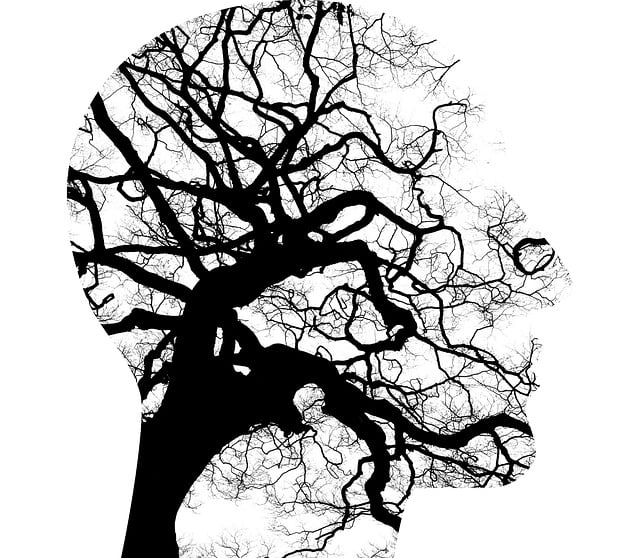Mental wellness self-assessment tools like the Colorado Springs Model, rooted in gender-affirming care therapy, offer a holistic approach to mental health management. By focusing on physiological, psychological, and social aspects, these tools create safe spaces for emotional exploration, risk factor identification, and adaptive coping strategies. The successful Colorado Springs Gender-Affirming Care Therapy model embraces diversity, goes beyond binary genders, and integrates Mental Health Policy Analysis and Advocacy. Regular updates based on user feedback and clinical research ensure the tool's effectiveness and adaptability, enhancing emotional resilience among diverse individuals in Colorado Springs and beyond.
Mental wellness self-assessment tools play a crucial role in personal growth and understanding. This article explores the development of such tools, focusing on the innovative Colorado Springs Model, which offers a comprehensive approach to mental health evaluation. We delve into designing gender-affirming care therapy tools, ensuring inclusivity and accuracy. By examining these strategies, professionals can enhance their practices, providing effective support tailored to individual needs. Learn about implementation and continuous improvement techniques for a transformative impact on mental wellness assessment.
- Understanding Mental Wellness Self-Assessment: The Colorado Springs Model
- Designing Gender-Affirming Tools for Comprehensive Evaluation
- Implementation and Continuous Improvement Strategies
Understanding Mental Wellness Self-Assessment: The Colorado Springs Model

Mental wellness self-assessment tools play a pivotal role in facilitating individual awareness and promoting proactive mental health management. Among various models, the Colorado Springs Model stands out as a comprehensive framework for understanding and addressing mental wellness. Drawing from innovative practices in gender-affirming care therapy, this model emphasizes holistic well-being by integrating physiological, psychological, and social dimensions. It encourages individuals to explore their emotional regulation skills, identify risk factors, and develop adaptive coping mechanisms, all aligned with the core principles of Mind Over Matter.
Through Colorado Springs Gender-Affirming Care Therapy, the model prioritizes a safe and supportive environment where individuals can openly assess their mental health status. This inclusive approach ensures that everyone, regardless of identity or background, has access to effective self-assessment tools. Moreover, it incorporates tailored strategies for risk management planning, enabling mental health professionals to offer personalized guidance while enhancing emotional resilience in their clients.
Designing Gender-Affirming Tools for Comprehensive Evaluation

In developing mental wellness self-assessment tools, it’s crucial to design them with a comprehensive approach that considers diverse identities and needs. This includes creating Gender-Affirming Care Therapy models, tailored for individuals in Colorado Springs seeking support. Such tools should go beyond binary gender categories, embracing a spectrum of experiences. By integrating principles from Mental Health Policy Analysis and Advocacy, the assessments can address systemic barriers and promote Emotional Intelligence, fostering inclusive spaces that enhance emotional well-being promotion techniques.
This holistic approach ensures that self-assessment tools are sensitive to the unique challenges faced by various genders and sexual orientations. It encourages a deeper exploration of mental health, encouraging open dialogue about gender identity and its impact on overall wellness. Through this process, we can create resources that resonate with everyone, revolutionizing care and support in Colorado Springs and beyond.
Implementation and Continuous Improvement Strategies

The development of a robust mental wellness self-assessment tool is just the beginning; its success lies in ongoing implementation and improvement strategies. One effective approach is integrating Colorado Springs Gender-Affirming Care Therapy methods, which prioritize patient-centered care and adaptive assessment techniques. Regular feedback from both users and professionals can offer valuable insights for refining the tool over time, ensuring it remains relevant and effective.
Embracing emotional intelligence as a core component enhances the assessment’s depth. This involves training evaluators to recognize not just symptoms but also underlying emotional patterns. Additionally, incorporating risk assessment techniques for mental health professionals can mitigate burnout prevention strategies for healthcare providers, fostering a healthier and more sustainable environment. Continuous updates based on clinical research and feedback will be instrumental in achieving optimal performance and user satisfaction.
The development of mental wellness self-assessment tools, as exemplified by the Colorado Springs Model and gender-affirming care therapy, plays a pivotal role in enhancing access to comprehensive psychological evaluations. By incorporating these innovative approaches, we can ensure that individuals receive tailored support aligned with their unique needs. Continuous improvement strategies, as discussed, are essential to keep up with evolving best practices, making mental health resources more effective and inclusive for all.














